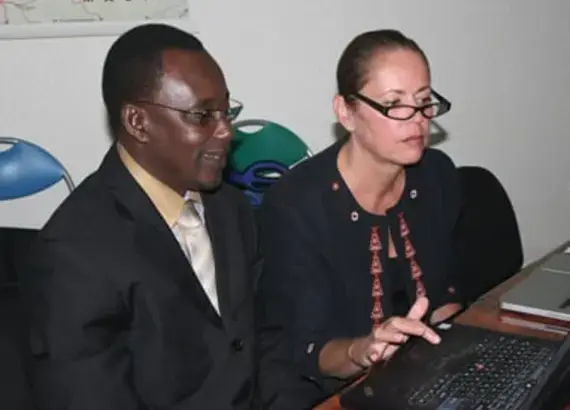
Success Story
Mauritanians Urged to Increase Transparency, Participation in Run Up to Elections
Following coups in 2005 and 2008 and faced with youth protests against government policies perceived as racist, upcoming elections in Mauritania offer an opportunity for the country to show its commitment to democratic principles and constitutional law. But measures to increase transparency and participation will need to be enacted first for the public to have confidence in the results, according to a pre-election assessment by NDI.
The report is based on a four-day visit by a delegation that met with party leaders, members of parliament, civil society leaders, members of the international community and Mauritanian citizens interested in the political process. Emphasizing transparency, the group urged the government to re-establish the National Independent Election Commission (CENI), which was dissolved after the 2009 presidential elections. Currently, the Ministry of the Interior (MOI) is organizing the elections, and political activists are concerned that the ministry lacks the independence necessary to plan credible elections.
In addition, the delegation urged the MOI to accredit election observers from civil society and political parties, to open up all parts of the process to those observers, and to allow them to report and publicize their findings. The delegation also urged the MOI to accept and accredit any credible international organizations that might want to observe the upcoming vote for parliament and municipal offices.
The delegation comprised Francesca Binda, NDI senior director in the West Bank and Gaza; Badie Hima, NDI resident director in Togo; Megan Doherty, NDI program officer; and Jacques Veilleux, NDI resident director in Mauritania.
Their report encourages an inclusive approach to elections to ensure that all citizens and political parties have a chance to participate. Approximately 600,000 Mauritanians, 18 percent of the population, need to be added to the voter registry, and the MOI does not seem ready to meet that goal, NDI said, although the ministry is making an effort to register traditionally excluded groups in the country’s interior.
Voter education is widely needed to ensure that citizens know where, when and how to vote, the report continued. The delegation suggested using radio programming for voter education, as just under half of Mauritania’s adult population is illiterate, and radio is a popular medium in rural areas.
The delegation also urged the government to repeal the current ban on peaceful protests, noting that while it might not impact the elections directly, the ban contributes to an atmosphere of repression and intolerance that is unlikely to improve the campaign or election periods.
When the delegation was in Mauritania July 24-27, elections were scheduled for Oct. 16, which would have complied with a constitutional requirement that a parliamentary term cannot exceed five years. Since then, the elections have been indefinitely postponed, and it remains unclear whether the parliamentarians will stay in office and whether that is constitutionally valid.
In the meantime, the government and opposition parties are planning a national dialogue to discuss the elections, national unity, civil liberties, judicial independence, the role of the army and more. With so many topics to cover, the delegation was concerned that the elections might not get the attention they need, and urged both the government and political parties to focus on reaching agreement on acceptable conditions and a set timetable for elections before discussing other topics.
Related:
Published Sept. 13, 2011



